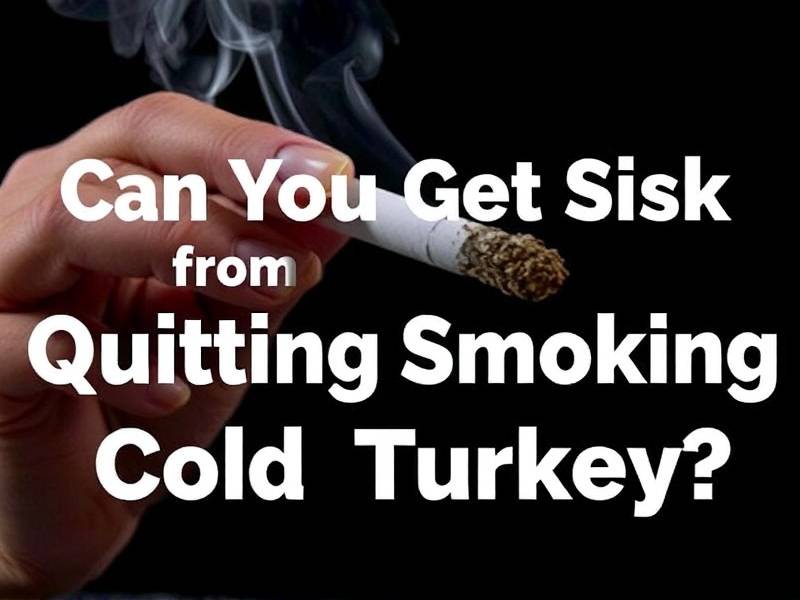Can You Get Sick From Quitting Smoking Cold Turkey?
Navigating the Cold Turkey Journey: Understanding the Health Implications of Quitting Smoking
Introduction: The decision to quit smoking is a significant step towards a healthier life. While many smokers aim to quit cold turkey, concerns often arise about the potential health implications of this abrupt cessation. In this article, we delve into the question: Can you get sick from quitting smoking cold turkey?
Section 1: The Cold Turkey Approach Quitting smoking cold turkey refers to stopping the habit abruptly without any form of nicotine replacement therapy (NRT) or medication. This method can be challenging but has its own set of advantages and potential risks.

Section 2: The Body's Response to Quitting Smoking Cold Turkey When you quit smoking cold turkey, your body undergoes several physiological changes. Here's a breakdown of what happens:
- Nicotine withdrawal symptoms: As nicotine leaves your system, you may experience withdrawal symptoms like cravings, irritability, anxiety, and headaches.
- Detoxification process: Your body begins to eliminate nicotine and other harmful substances from your system.
- Improved cardiovascular health: Within days of quitting, your heart rate and blood pressure may start to normalize.
- Enhanced lung function: Over time, quitting smoking can improve lung capacity and reduce the risk of respiratory problems.
Section 3: Health Risks Associated with Quitting Smoking Cold Turkey While quitting smoking is generally beneficial for your health, there are potential risks associated with quitting cold turkey:
- Short-term flu-like symptoms: Some individuals may experience flu-like symptoms like coughing, sneezing, and fatigue during the initial stages of quitting.
- Increased risk of weight gain: Many smokers gain weight after quitting due to changes in metabolism and appetite.
- Increased risk of relapse: Without nicotine replacement therapy or medication, some individuals may find it more challenging to resist cravings.
Section 4: Managing Withdrawal Symptoms To minimize withdrawal symptoms when quitting smoking cold turkey:
- Stay hydrated and eat healthy meals.
- Engage in physical activity to boost endorphins and reduce stress.
- Seek support from friends, family, or support groups.
- Consider alternative coping strategies like meditation or deep breathing exercises.
Conclusion: Quitting smoking cold turkey can be challenging but is generally safe for most individuals. Understanding the potential health implications and managing withdrawal symptoms can help make the journey smoother. Remember that seeking professional advice from healthcare providers is essential if you have any concerns about quitting smoking.

Note: This article is intended for informational purposes only. Always consult with a healthcare professional before making any significant changes to your lifestyle or treatment plan.
